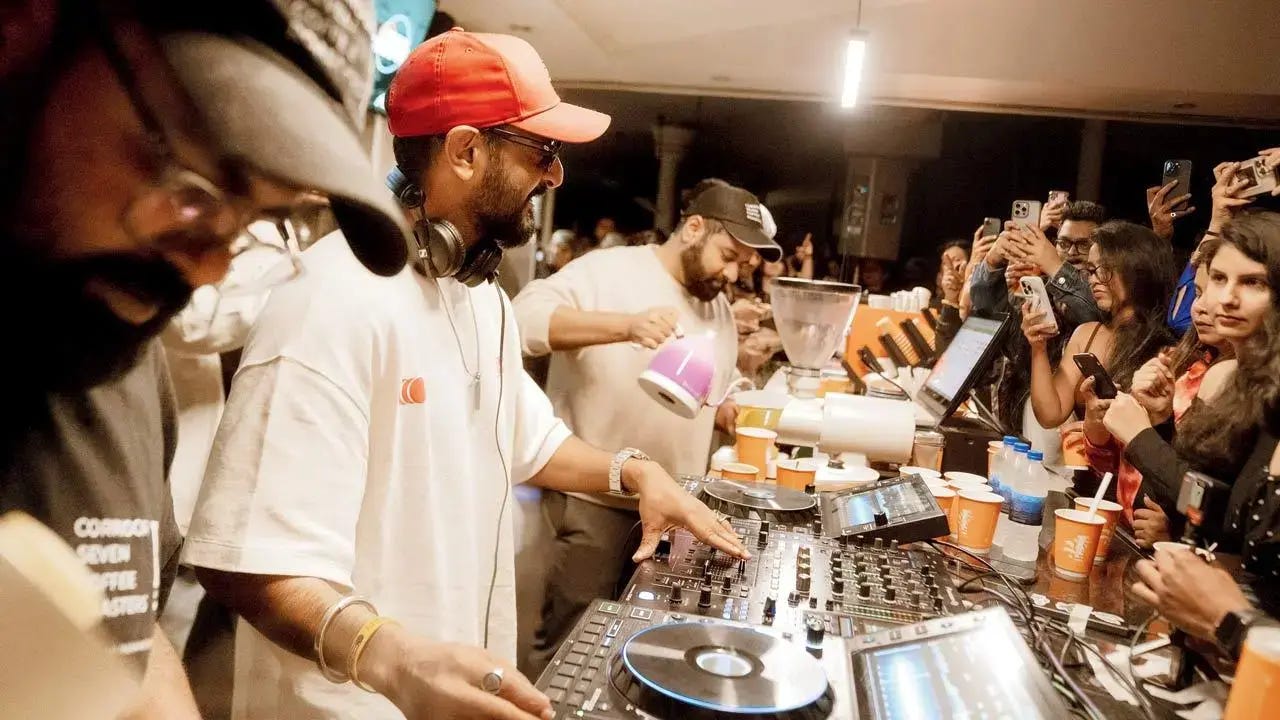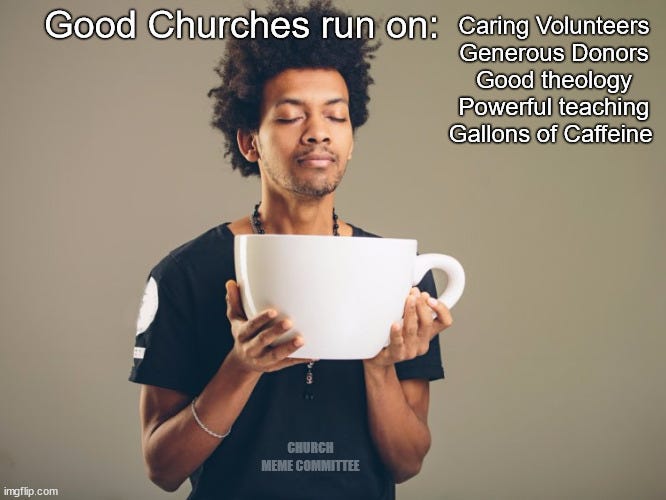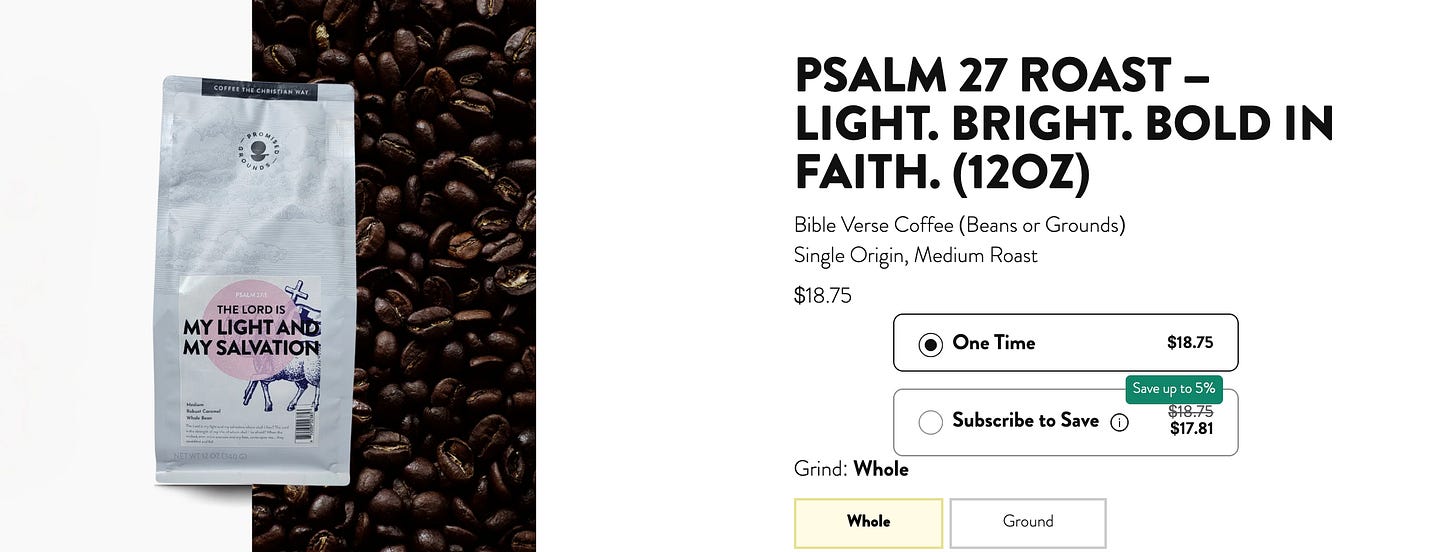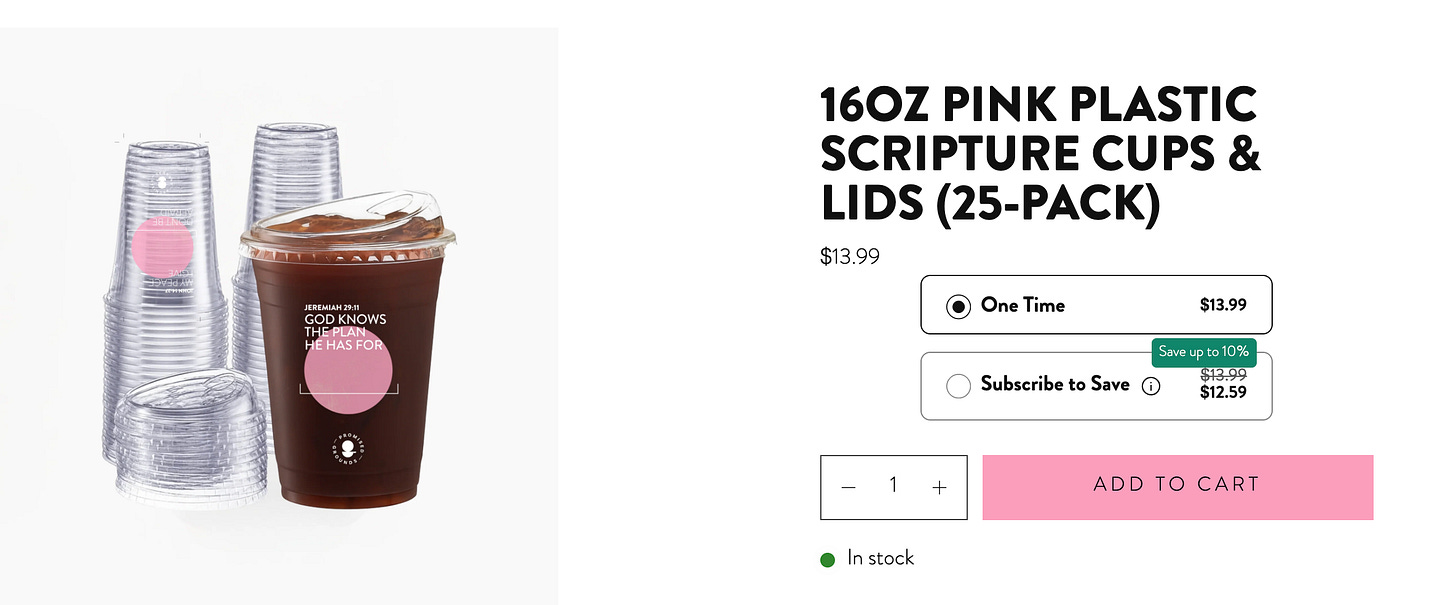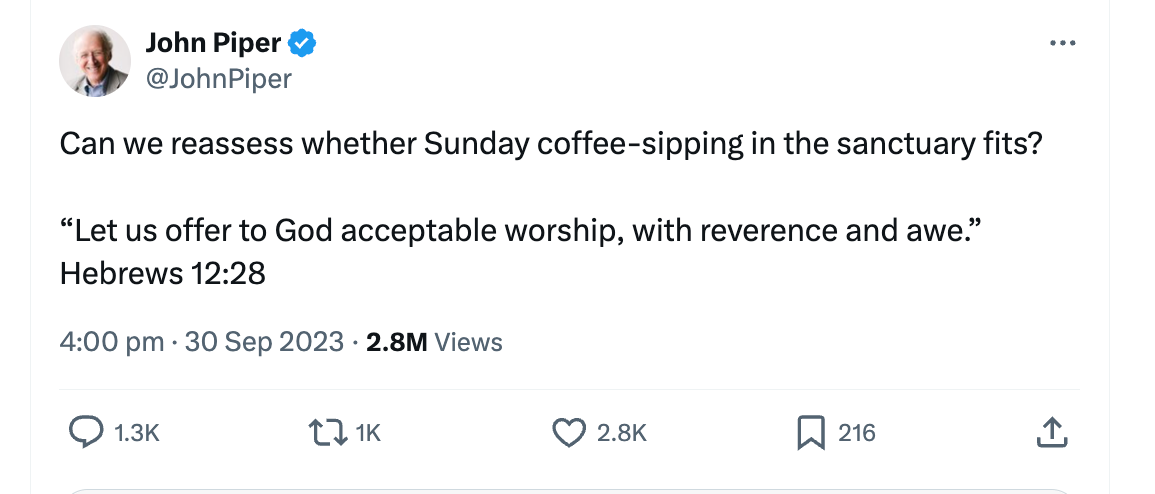Caffeine-assisted worship
'Coffee raves' and espresso as an ecstatic / contemplative practice
Welcome to Ecstatic Integration, a Substack about whether we can re-integrate ecstatic experiences into western cultures wisely and relatively safely. On that topic, there’s an online peer support group for anyone experiencing post-psychedelic difficulties this Saturday 5pm UK time - message me if you’d like to attend.
In the last few years I have felt less close to God.
After searching so intensely for God in my late 30s, and not really coming up with any concrete answers, I settled into a sort of hopeful agnosticism. I would meditate every day and go to the occasional Buddhist retreat. But that stopped too, during the pandemic. While other people went on a deep inner journey during lockdown, I became more disenchanted and more critical - of conspirituality, toxic cults and gurus, spiritual eugenics, psychedelic harms, and the dark side of New Age spirituality.
I wrote about the dark side a lot, and I tried to help people through the dark side, through my writing and the non-profit I set up. And this was, I guess, a spiritual practice of sorts.
But what about my relationship to God? What’s my spiritual practice?
Sometimes I would tell myself that domesticity was my new spiritual practice. Learning to cohabit with a lover for the first time in my life, then getting a dog, then getting married. All the while trying to have children through IVF. This was my spiritual practice, or at least, it was ‘what is happening’. It didn’t always feel very spiritual, and sometimes it felt pretty hard.
But it’s gotten easier. And, slowly, I feel a stronger connection to God again. I think an important part of that has been rediscovering morning prayer.
I wake up between 4am and 5.30am, not out of choice, that’s just what happens as you approach 50. I get up, make a coffee, and sit on the balcony of our apartment, looking out over the Pacific Ocean in the distance. It’s very quiet. Some horses are grazing in a field below me. The birds are waking up, singing, and flying across the sky. The sun is beginning to rise over the hills. The clouds are chilling. Rufus the dog might appear and say hello before beginning his morning scratch. I give thanks and praise to the Lord.
Thank you, Oh Mysterious One, for this amazing world! Thank you for my life! Thank you for my wife, my family, my friends, my dog, my work. I dedicate myself and my work to You. Thy will be done.
This is really the heart of prayer. It’s the difference between mysticism and magic. Magic is ‘my will be done’, prayer is ‘Thy will’.
Whatever you want me to do with my life, may you guide me to it and may I accept it. I trust in God and whatever plan He / She / They / Ze has for me.
The fruits of this incredibly simple practice are a greater appreciation of my life, my wife, this planet. Feeling more joy, more love for myself, more love for others. Just being much less of a middle-aged grump. Put God first and everything else is easier.
One other thing I noted. Part of this morning ritual is coffee. I bought an inexpensive coffee machine earlier this year. I grind the coffee beans, put the powder into the machine, make the espresso in a little white cup, then sit on the balcony sipping it while looking out over the morning and thanking God.
The coffee plays a role in this little morning ritual, not a central role, but it’s an assistant. I laughed at the thought of it this morning - ‘caffeine-assisted worship’. Then, being a caffeinated intellectual scribbler, I started to think about coffee as a mind-altering sacrament and its role in ecstatic practices.
The sacred roots of coffee
Coffee appears to have originated in the Ethiopian region of Kaffa, somewhere around the 8th or 9th century AD. There is a legend of an Ethiopian shepherd called Kaldi, who noticed his goats consuming coffee beans and then prancing around. He tried some of the beans himself and experienced humanity’s first caffeine rush. Eager to share his discovery, Kaldi took some of the beans to a nearby Christian monastery, but the monks thought the beans might be demonic, so they threw them on a fire. This produced an exquisite odour - aaaah, roasted coffee beans - which attracted people to the monastery. Impressed with its evangelical power and convinced it must be a gift from God, the monks proceeded to brew the first cup of coffee.
Well, if you believe that, I have a copy of The Immortality Key I want to sell you.
We have a bit more evidence for the use of coffee by Sufi monks in Yemen, around the 15th century. They used it, apparently, to stay awake and sharp in their all-night prayer vigils. Coffee spread from Yemen to other parts of the Islamic world and became very popular. Sometimes it was accepted by the Mullahs, sometimes it was condemned, and coffeehouses would be trashed by fundamentalists. But it became broadly accepted and integrated into Middle-Eastern culture, along with tobacco.
Coffee is also central to contemporary Christian culture, especially to American Protestantism.
When I was a card-carrying Christian for a couple of years, I used to go to a big charismatic Anglican church called Holy Trinity Brompton (HTB) - it’s now at the heart of the Christian nationalist revival in the UK through its connection to Paul Marshall, GB News, Reform UK etc, but that’s another story. HTB adopted the US charismatic Christian mega-church style and brought it to the UK. So their Sunday services involve rock bands, Coldplay-style worship with the words appearing on a giant video screen, people praying and singing with their arms in the air, eyes closed as they feel the Holy Spirit, pumped-up young vicars with head-microphones dropping life-coach advice.
And a lot of coffee.
You arrive, you get free coffee. There’s a cafe downstairs where friends meet before the service. Many people take their giant coffees into the service. And it feeds into the vibe - people are pumped for Jesus! It also feeds into the hustle and grind of charismatic Christianity - we are converting for Jesus, church-planting for Jesus, networking for Jesus, meming for Jesus, campaigning for Jesus, making a fortune and then tithing for Jesus! More coffee?
Stephen Foster, one of the boyband vicars I used to see preach at HTB, tells a story about how he fell in love with the church:
If I’m honest, I never really liked the church. I didn’t even really like Christians that much…And then one day, I was at the back of our church in east London, and someone said to me, we need help to run the coffee team. I was working 70, 80 hour weeks. I said, I’m a barrister, not a barista. But I was like, OK, I’ll do it. So I turn up next week, and as I handed these cups to people, something really changed in me. I found myself, as I handed them coffee, growing in love with them. This was an extremely diverse community, and I thought, this is a miracle. So I went back to the person who asked me to help, and I said, we need a new coffee machine, we need better beans, we need better mugs. I want this to be the best coffee they get. I started to build a team to serve coffee on a Sunday morning. And I sometimes say, making coffee changed my life, because I fell in love with the church of Jesus Christ.
I mean, change ‘coffee’ for ‘ayahuasca’ and he sounds like a New Age ‘space-holder’ doesn’t he?
I wondered if evangelical Christians are aware of the centrality of coffee to their worship-practice. It seems like they are. Christianity Today had a feature called ‘Wired for Jesus’ that explores the relationship. The author, Isaac Woods, writes:
Coffee dominates church life. The consumption of caffeine, as one writer quipped, is “Christians’ acceptable vice,” seeing us “through a Reformation, modernity and postmodernity, through boring Sunday sermons and lively evening rituals. Now it takes its place on the kitchen table, next to the Bible—close enough to be in the same frame.” We get out of bed and begin our days with, as John Mark Comer puts it, “the ancient Christian spiritual discipline of really good coffee.” Only after arming ourselves against drowsiness do we set about praying.
Another Christian blogger, David Bonner, writes:
Coffee plays a major role in the evangelical culture of American Protestantism…a mega church is not officially a mega church unless it has a coffee shop…for many evangelicals the coffee shop is central to their faith. It was where countless evangelical friends and I would aim at meeting for fellowship.
I wondered, are there explicitly-Christian brands of coffee? You betcha.
The centrality of coffee to the modern mega-church experience has raised some questions. Theologian John Piper went viral last year with a tweet.
This led to a discussion right across US Christianity, even in Fox News - should we be sipping in the sanctuary? Defenders of the sacred bean insisted yes, such as David Mathis, pastor at Cities Church and editor of Desiring God:
Despite what some well-meaning groups would argue, caffeine is “clean” for Christian use. Long before the discovery of caffeine, Jesus taught us, “There is nothing outside a person that by going into him can defile him” (Mark 7:15; also Matthew 15:11). In the end, each Christian will stand before Christ to answer for his own caffeine usage.
‘My child, did you recycle the Nespresso pods?
David Mathis goes on:
It strikes me you could change ‘caffeine’ for ‘mushrooms’, ‘ayahuasca’ or any other plant and use the same theological justifications. Although, I guess coffee doesn’t typically lead to an entity encounter, and its effects and hustle mindset fit better with Protestant-capitalist culture. John Piper, the theologian whose tweet started the whole brew-ha, reflected:
The heart of the matter is not coffee in the sanctuary. That’s only a symptom. The heart of the matter is the absence of an existential, ongoing, terrifying, shocking, awe-inspiring, trembling, mouth-shutting, comforting, safe, satisfying encounter with the majesty and mercy of the great “I am who I am”
So maybe a mushroom-caffeine blend?
Meanwhile, outside the churches, the big thing this year is ‘coffee raves’. Gen Z are exchanging MDMA and nightclubs for coffee and morning raving…
More after the paywall. Plus, my thoughts on that NYT article about Amy Griffin’s memoir of MDMA-recovered memories of abuse.


